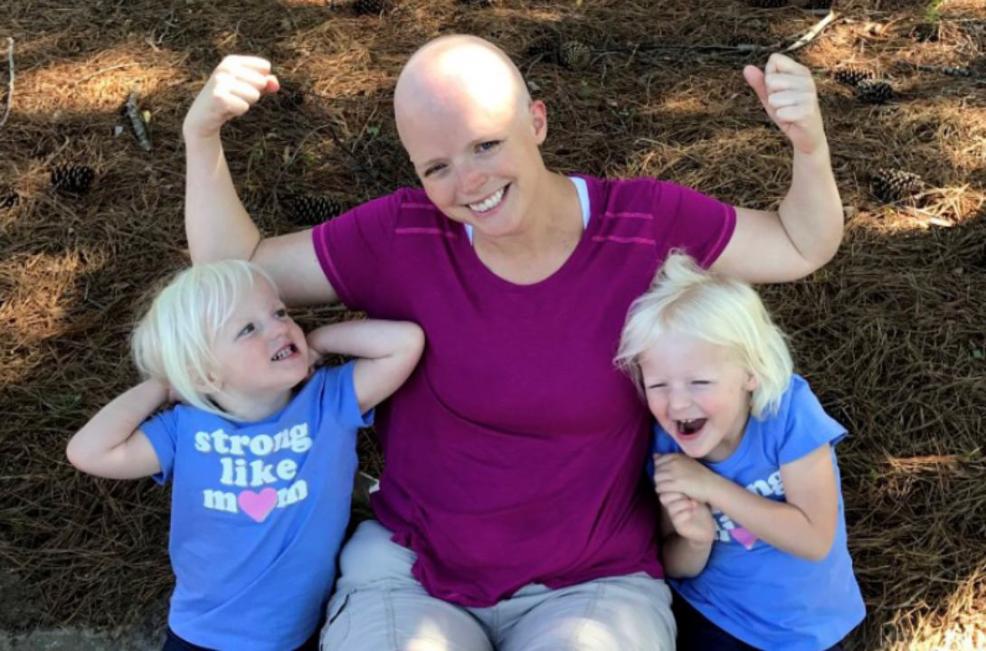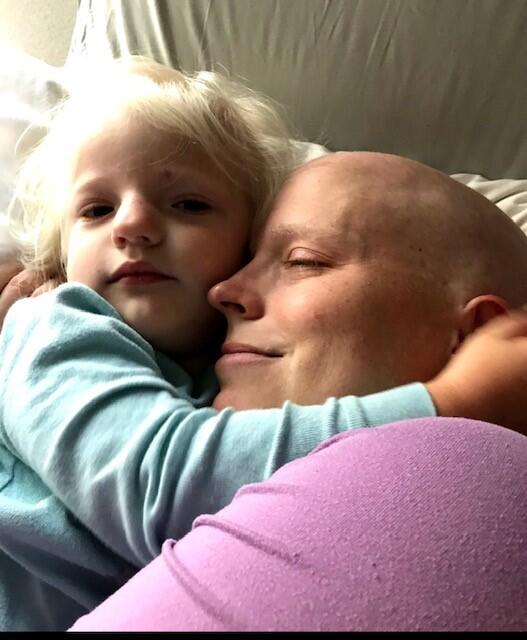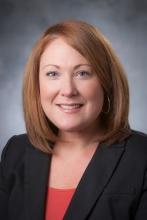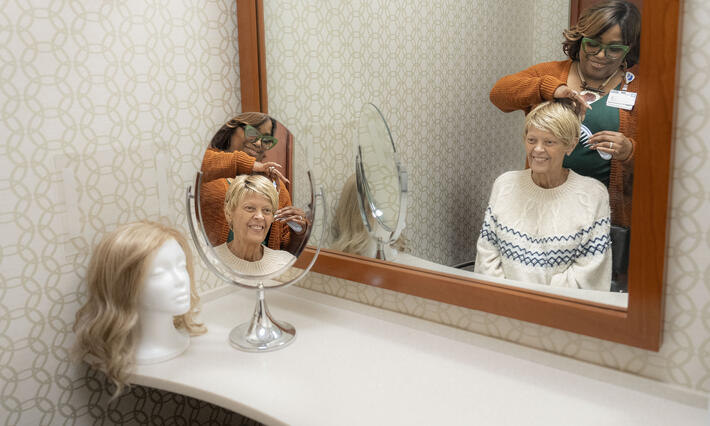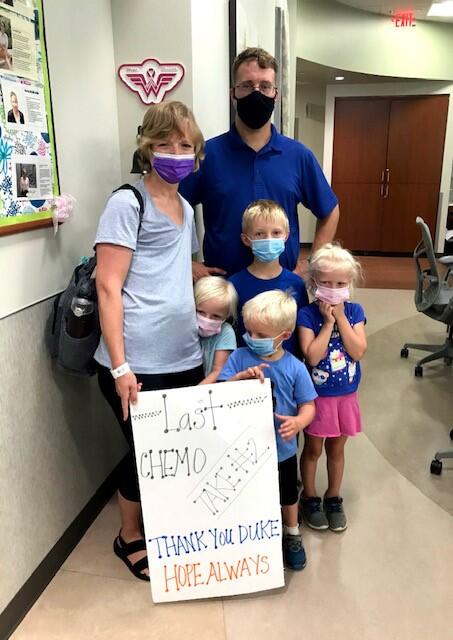
A DCI breast cancer care team joins forces with a genetics counselor to treat mother with high-risk genetic syndrome; prompting testing, then preventative screening for her kids.
Living a good life at age 35, Rebecca Cook thought she had more time before she needed to start thinking about screening for breast cancer. After all, she was a young mom of four kids who successfully managed to breastfeed for the past seven years, including a set of twins. (Breastfeeding, she had heard, is believed to lower breast cancer risk.)
And she thought time was on her side. (Cook hadn’t yet reached age 40, the recommended age to start screening women of average risk.)
But in February of 2020, as news reports began to swirl about the emergence in the U.S. of a potentially deadly virus, COVID-19, Cook found herself facing her own health crisis — a diagnosis of stage 3 inflammatory breast cancer.
She described the next few months on chemotherapy — 16 rounds of infusions at a clinic close to home in Norfolk, Virginia — as a whirlwind. Due to pandemic-safety rules, she was forced to attend her treatments in isolation — without the comfort of family or friends by her side.

